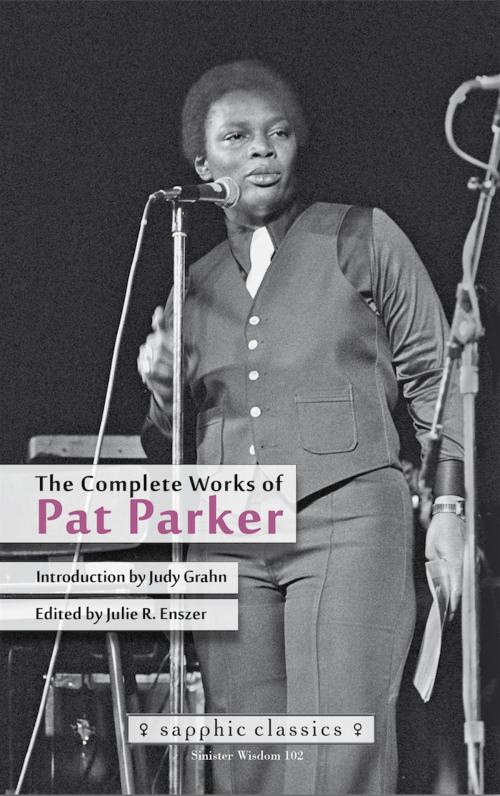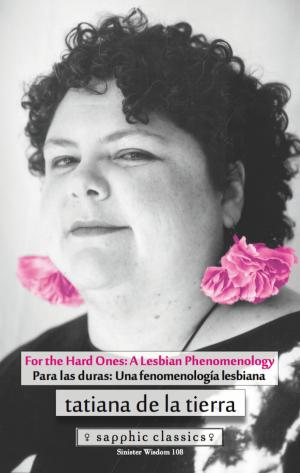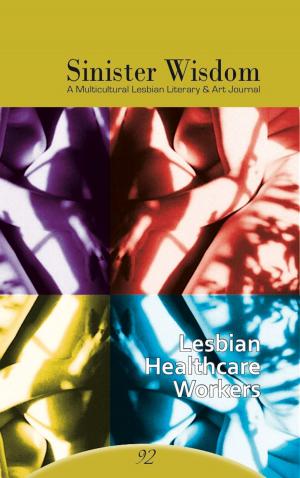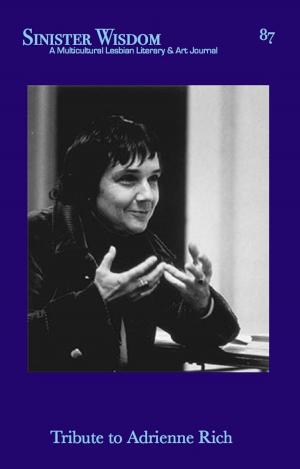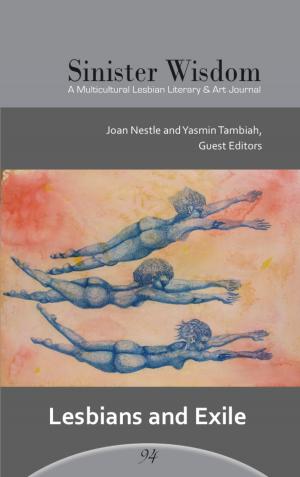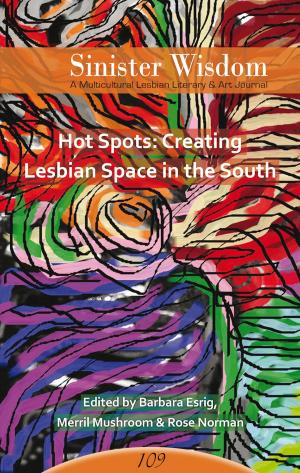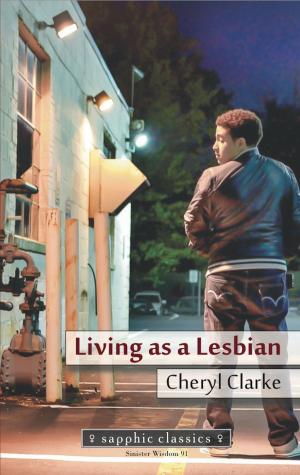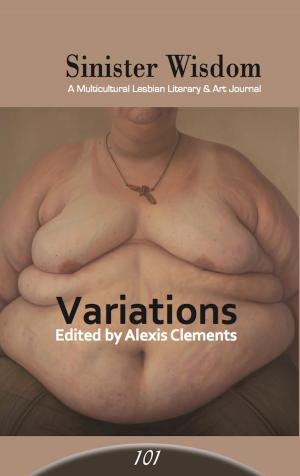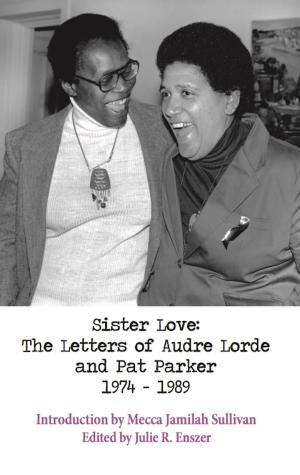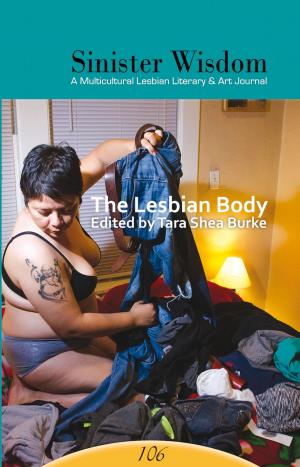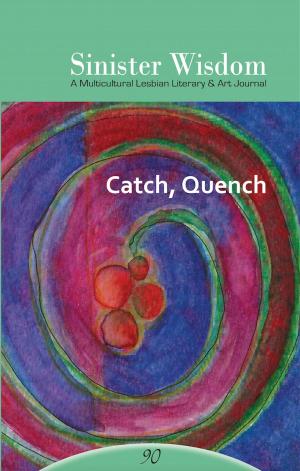| Author: | Sinister Wisdom | ISBN: | 9781938334269 |
| Publisher: | Sinister Wisdom | Publication: | May 25, 2017 |
| Imprint: | Smashwords Edition | Language: | English |
| Author: | Sinister Wisdom |
| ISBN: | 9781938334269 |
| Publisher: | Sinister Wisdom |
| Publication: | May 25, 2017 |
| Imprint: | Smashwords Edition |
| Language: | English |
During her lifetime, Pat Parker was a renowned African-American, lesbian-feminist poet and performer. She was the author of Jonestown & Other Madness (1985), Movement in Black (1978, 1983, 1989, 1999), Womanslaughter (1978), Pit Stop (1974, 1975), and Child of Myself (1972, 1974). Her poems appeared in numerous journals, newspapers, and anthologies. With Judy Grahn, she recorded the album Where Would I Be Without You (Olivia Records, 1976), and one of her spoken poems appeared on the album Lesbian Concentrate.
The Complete Works of Pat Parker includes Parker’s masterwork, Movement in Black, as well as Jonestown & other madness. Parker’s prose writing is collected in The Complete Works along with two unpublished plays and a number of previously uncollected poems. Editor Julie R. Enszer notes, “The breadth of creative output collected here demonstrates the seriousness of Parker’s overall work as a writer. Beginning in 1963, when she was nineteen years old, and continuing until she died in 1989, Parker took her work as a writer seriously. Gathering as much of it as possible into a single volume invites readers to take it seriously as well.”
Award-winning author Alexis de Veaux says,
Pat Parker. She was a blueswoman lesbian poet rocknroller performance artist. A “revolutionary feminist,” who understood revolution is “not neat or pretty or quick.” She was a woman intimate with the ravages of breast cancer. And she was a daughter, sister, lover, mother. She was young when she died. But she defied any simple renderings of those labels.
In The Complete Works of Pat Parker, we have a trove of her artistic and political engagements-poetry and stories and plays and speeches; these are not separate realities. They intertwine in her now classic works, Movement in Black (1978), Womanslaughter (1978), and Jonestown & Other Madness (1985). But here too are less celebrated and uncollected works, plays especially, that show off Parker’s willingness to experiment, to push us towards more politicized realities. And in them, she was bracing, accessible, unapologetically black. She turned her pen to James Baldwin, her lovers, former president Lyndon Johnson, Eleanor Bumpers, her mother, to the world at large, saying “…I am not a good American. I do not wish to have the world colonized, bombarded and plundered in order to eat steak.” Pat Parker stayed woke to black suffering, violence against black bodies-especially those of black women-to the suffering engendered by multiple, egregious oppressions. With this oeuvre, we are allowed an opportunity to historicize Pat Parker’s significance to black women’s literary traditions, lesbian erotics, to black queer struggles and black feminisms, and to global social justice movements. She was in her time. Now, with this important text, she will be in all time to come.
Poet and writer Kazim Ali notes, “For those in the know, Pat Parker never went anywhere. Contemporary and comrade of Audre Lorde, Parker was one of the most important lesbian writers of color throughout the 70s and 80s. Her work was cherished and widely available though, like most of the other writers in this community, her work went out of print. With Parker's early death in 1989, her work remained important to only a small but devoted readership. Now editor Julie Enszer has brought all of Parker's work together for a new generation of readers and activists and just in time. This edition includes all the poems Parker published in her lifetime plus her uncollected poetry, two plays and a range of autobiographical writing and essays. As the Black Lives Matter movement calls attention to the grave risk Black people have always faced and when poets and artists wrestle with the question of how to marry the political and the personal in their work, we have never needed Parker's work more than NOW. It is absolutely immediate, searing, salving, saving, and NECESSARY."
During her lifetime, Pat Parker was a renowned African-American, lesbian-feminist poet and performer. She was the author of Jonestown & Other Madness (1985), Movement in Black (1978, 1983, 1989, 1999), Womanslaughter (1978), Pit Stop (1974, 1975), and Child of Myself (1972, 1974). Her poems appeared in numerous journals, newspapers, and anthologies. With Judy Grahn, she recorded the album Where Would I Be Without You (Olivia Records, 1976), and one of her spoken poems appeared on the album Lesbian Concentrate.
The Complete Works of Pat Parker includes Parker’s masterwork, Movement in Black, as well as Jonestown & other madness. Parker’s prose writing is collected in The Complete Works along with two unpublished plays and a number of previously uncollected poems. Editor Julie R. Enszer notes, “The breadth of creative output collected here demonstrates the seriousness of Parker’s overall work as a writer. Beginning in 1963, when she was nineteen years old, and continuing until she died in 1989, Parker took her work as a writer seriously. Gathering as much of it as possible into a single volume invites readers to take it seriously as well.”
Award-winning author Alexis de Veaux says,
Pat Parker. She was a blueswoman lesbian poet rocknroller performance artist. A “revolutionary feminist,” who understood revolution is “not neat or pretty or quick.” She was a woman intimate with the ravages of breast cancer. And she was a daughter, sister, lover, mother. She was young when she died. But she defied any simple renderings of those labels.
In The Complete Works of Pat Parker, we have a trove of her artistic and political engagements-poetry and stories and plays and speeches; these are not separate realities. They intertwine in her now classic works, Movement in Black (1978), Womanslaughter (1978), and Jonestown & Other Madness (1985). But here too are less celebrated and uncollected works, plays especially, that show off Parker’s willingness to experiment, to push us towards more politicized realities. And in them, she was bracing, accessible, unapologetically black. She turned her pen to James Baldwin, her lovers, former president Lyndon Johnson, Eleanor Bumpers, her mother, to the world at large, saying “…I am not a good American. I do not wish to have the world colonized, bombarded and plundered in order to eat steak.” Pat Parker stayed woke to black suffering, violence against black bodies-especially those of black women-to the suffering engendered by multiple, egregious oppressions. With this oeuvre, we are allowed an opportunity to historicize Pat Parker’s significance to black women’s literary traditions, lesbian erotics, to black queer struggles and black feminisms, and to global social justice movements. She was in her time. Now, with this important text, she will be in all time to come.
Poet and writer Kazim Ali notes, “For those in the know, Pat Parker never went anywhere. Contemporary and comrade of Audre Lorde, Parker was one of the most important lesbian writers of color throughout the 70s and 80s. Her work was cherished and widely available though, like most of the other writers in this community, her work went out of print. With Parker's early death in 1989, her work remained important to only a small but devoted readership. Now editor Julie Enszer has brought all of Parker's work together for a new generation of readers and activists and just in time. This edition includes all the poems Parker published in her lifetime plus her uncollected poetry, two plays and a range of autobiographical writing and essays. As the Black Lives Matter movement calls attention to the grave risk Black people have always faced and when poets and artists wrestle with the question of how to marry the political and the personal in their work, we have never needed Parker's work more than NOW. It is absolutely immediate, searing, salving, saving, and NECESSARY."
